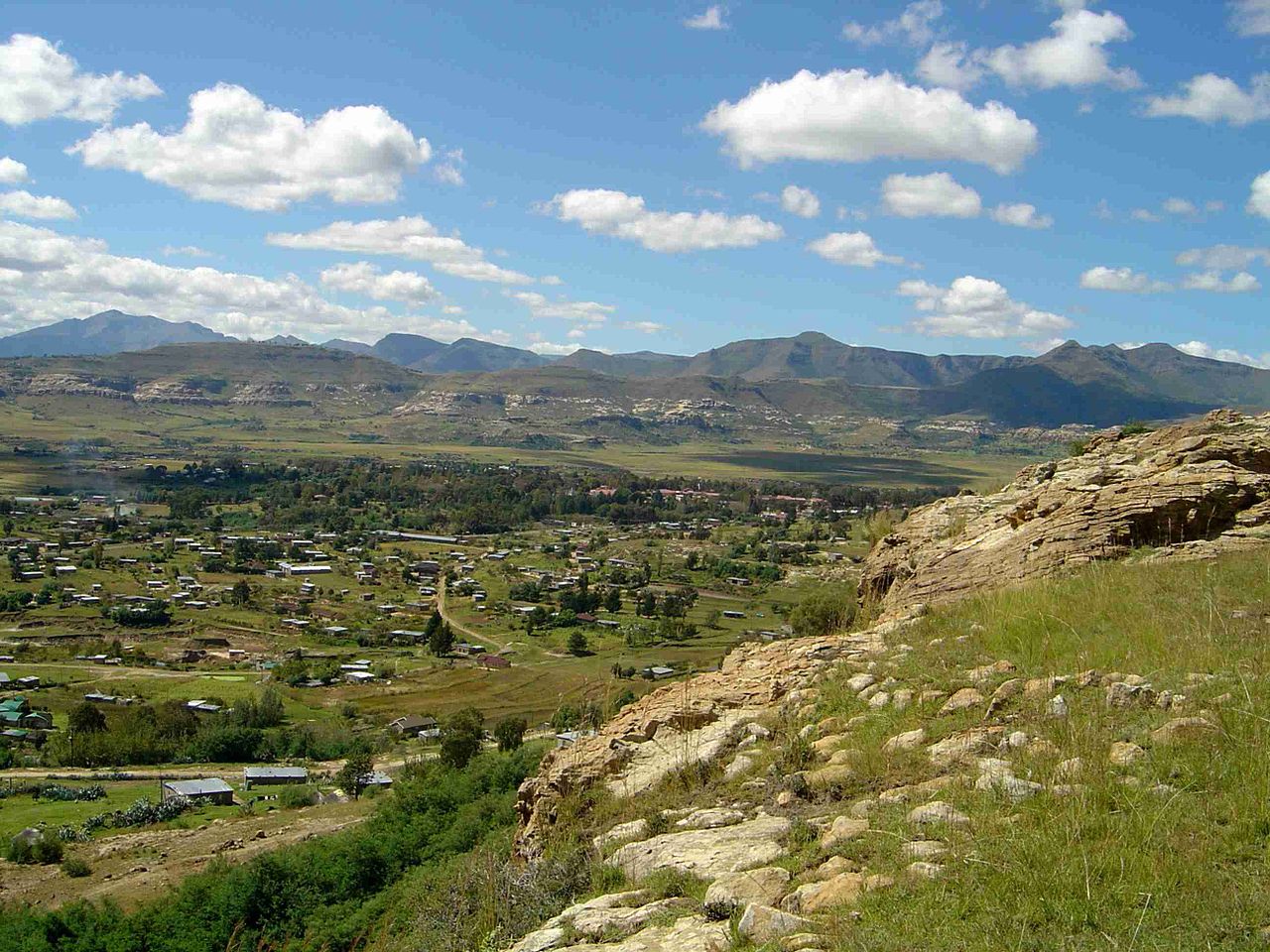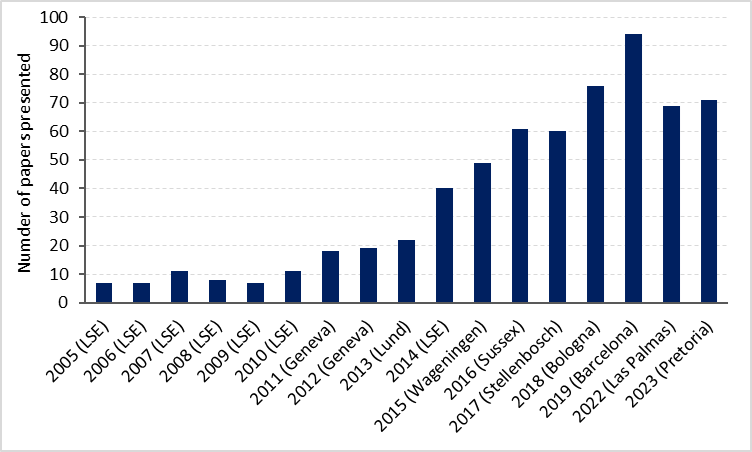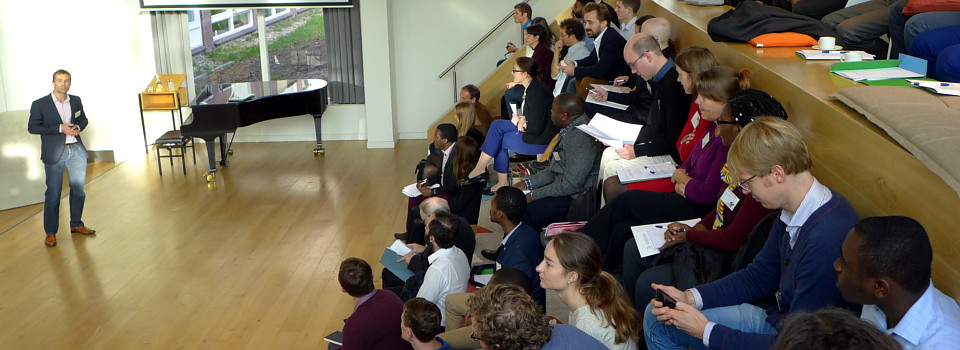18th Annual Meeting of the African Economic History Network
Dates: 30-31 October 2025
Location: National University of Lesotho, Roma, Lesotho
Theme: Disruptions and Resilience in African Economic Transformations
Submission deadline: 31 March 2025
The African Economic History Network (AEHN), in collaboration with the Departments of Historical Studies and Economics at the National University of Lesotho (NUL), invites submissions for its 2025 annual meeting. This year’s theme, “Disruptions and Resilience in African Economic Transformations,” seeks to interrogate the historical dynamics that have shaped Africa’s economic trajectories, addressing both enduring legacies, pivotal disruptions and turning points. The conference will foster interdisciplinary dialogue and provide a platform for exploring and accounting for the continent’s economic and social past through diverse lenses.
On 29 October, the day before the conference, the bicentennial celebrations of Lesotho’s history will take place at the National University of Lesotho. Participants of the AEHN are also invited to join these special reflections on the country’s 200 years of socio-economic history.
Submission Guidelines
Researchers are invited to submit their paper abstracts of max. 300 words by 31 March 2025 to: [email protected], including the subject line: “AEHN Conference 2025 Abstract Submission“. Papers from early-career researchers and PhD students are particularly encouraged. There is no attendance fee.
Submissions should include:
- Author name(s) and affiliation
- Title of the paper
- Abstract (max. 300 words) outlining the paper’s contribution to the literature, methodology, and key findings/arguments
- Contact details (email)
Funding Opportunities
A limited number of travel and accommodation grants are available to support early-career researchers and scholars. Priority will be given to scholars based at African universities. If you wish to be considered for funding, please indicate this in your submission. For more information, please contact: [email protected]
Sub-Themes
Submissions are welcome on topics related, but not limited, to the following:
- Economic/Historical Development of Lesotho: Bicentennial reflections and mapping a way forward.
- Economic Resilience and Adaptation: Historical responses to economic crises and external shocks.
- Regional and Global Trade Systems: Evolution of African trade networks and regional integration efforts
- Colonial and Post-Colonial Economic Systems: Unpacking the continuities and disruptions from the colonial period to independence.
- Migration and Labor Markets: Historical insights into population movements and labor systems.
- Technology and Innovation: Disruptions brought by technological advancements in Africa’s economic history.
- Environmental Economies: Resource exploitation, sustainability, and climate impacts on economic systems.
- Urbanization and Infrastructure: Historical analysis of cities and economic hubs in African development.
- Gendered Perspectives: The role of women and gender dynamics in shaping economic transformations.
- Policy Evolution: Lessons from historical economic policies and their outcomes.
- Africa and Globalization: Historical engagement with global trade, finance, and institutions.

Annual Meeting of the AEHN: An Introduction
The AEHN Meeting is an annual gathering devoted to the discussion of work in progress in the economic history of (mostly Sub-Saharan) Africa. Gareth Austin organized it at the London School of Economics (LSE) in 2005-10, and at the Graduate Institute in Geneva in 2011 and 2012. Since then, it has moved each year, as shown in the figure below. Erik Green brought the 2013 workshop to Lund University, Leigh Gardner brought it back to the LSE for 2014, and the 2015 Meeting was hosted at Wageningen University by Ewout Frankema. The 2016 meeting was organised by Alexander Moradi, Felix Meier zu Selhausen and Gerardo Serra at the University of Sussex. Johan Fourie and LEAP brought the Meeting to Stellenbosch University in South Africa – taking place for the first time on the African continent. In 2018, the Meeting was then hosted by Karin Pallaver at Bologna University. In 2019, Alfonso Herranz and Federico Tadei organised the Meeting at University of Barcelona.
The format in the first six years was 7-11 short papers, which everyone read in advance, discussed in half a day followed by dinner. Most participants were PhD students and postdocs. Prior reading and short presentations remain the ideal, though some compromises have been necessitated by the growth in the number of papers presented. Some of the original junior participants now have their own research students, and the recent meetings have been notable for the participation of more senior as well as (in absolute terms) more junior scholars, while the much larger overall number of papers now means that the workshop needs at least a day and a half. The 2012 meeting enjoyed supplementary funding from the Swiss National Science Foundation, enabling the participation of more scholars from Africa and North America, and leading to the production of a special issue of the Economic History Review on ‘The Renaissance of African Economic History’ (November 2014), the first special issue to be published by a ‘mainstream’ economic history journal. However, the spirit of the gathering remained and continues to be informal, an opportunity to present first drafts as well as revised versions. The number of participants and presentations have been growing steadily every year, as shown in the figure below.
Prof. Gareth Austin (University of Cambridge), founder of the African Economic History Workshop

Previous Annual AEHN Meeting Programmes
- AEHN 2023 (University of Pretoria)
- AEHN 2022 (University of Las Palmas de Gran Canaria)
- AEHN 2019 (University of Barcelona)
- AEHN 2018 (University of Bologna)
- AEHN 2017 (Stellenbosch University)
- AEHN 2016 (University of Sussex)
- AEHN 2015 (Wageningen University), Summary of AEHN 2015
- AEHN 2014 (LSE)
- AEHN 2013 (Lund University)
- AEHN 2012 (Graduate Institute Geneva)
- AEHN 2011 (LSE)
- AEHN 2010 (LSE)
- AEHN 2009 (LSE)
- AEHN 2008 (LSE)
- AEHN 2007 (LSE)
- AEHN 2006 (LSE)
- AEHN 2005 (LSE)
